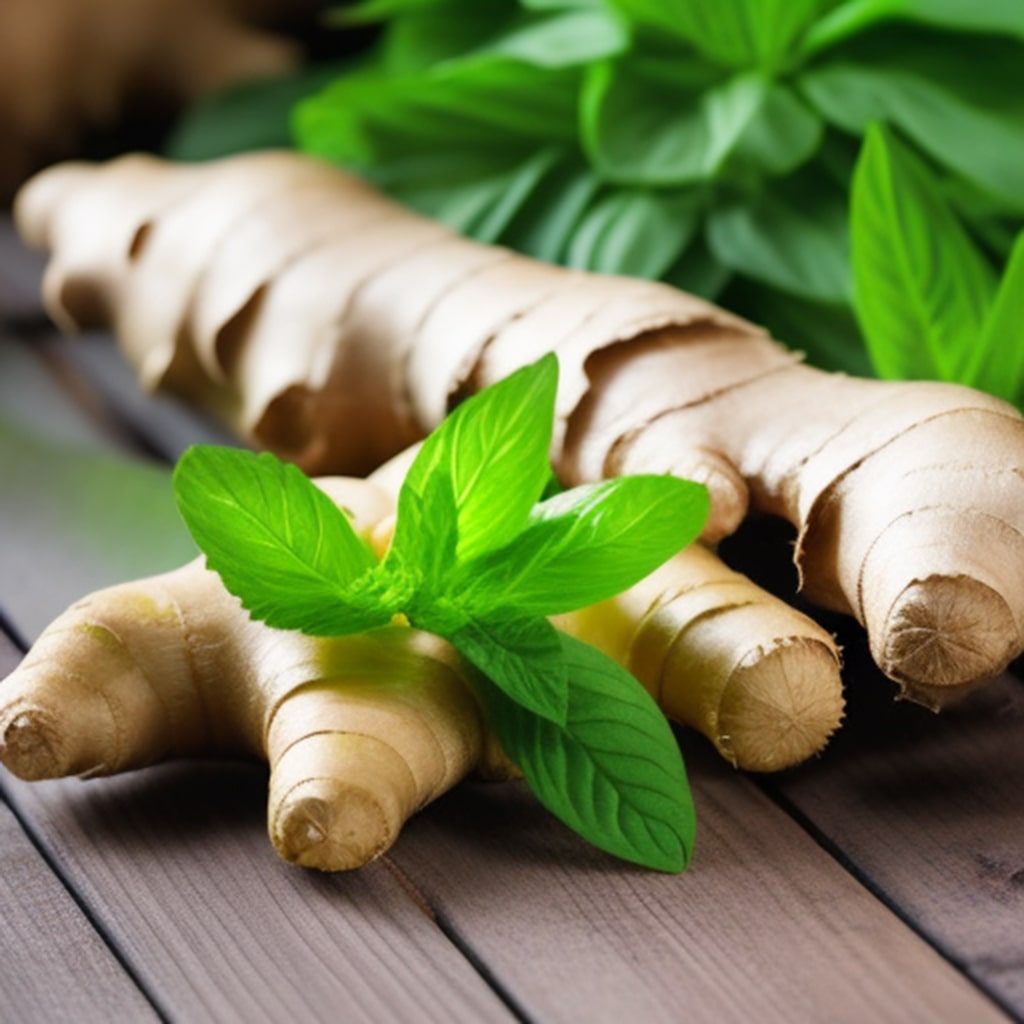Ginger, the golden-hued root known for its distinct aroma and flavor, has been cherished for centuries not only as a culinary spice but also for its remarkable health benefits. In this article, we will delve into the world of ginger, exploring its rich history, culinary versatility, and the science-backed health advantages that make it a prized addition to our diets.
Ginger’s Historical Significance:
Ginger, scientifically known as Zingiber officinale, has a storied history that dates back over 5,000 years. It was originally cultivated in Southeast Asia and soon became a valuable commodity in the ancient spice trade routes. Its popularity transcended culinary boundaries, as ginger was embraced for its medicinal properties by cultures worldwide.
Culinary Magic of Ginger:
- Flavor Enhancer: Ginger’s warm, spicy-sweet flavor profile adds depth and character to an array of dishes. Whether used in savory stir-fries, aromatic curries, or sweet treats like gingerbread, it never fails to delight the taste buds.
- Versatile Ingredient: Fresh ginger can be grated, minced, or sliced, making it suitable for a wide range of recipes. It’s equally at home in soups, marinades, sauces, and teas, showcasing its adaptability in diverse cuisines.
- Digestive Aid: Ginger’s natural compounds, including gingerol, lend it a soothing effect on the digestive system. It’s a popular choice for alleviating nausea and indigestion, making it a staple ingredient in many herbal remedies.
The Science of Ginger’s Health Benefits:
- Anti-Inflammatory Powerhouse: Ginger is renowned for its potent anti-inflammatory properties. Studies have shown that gingerol, the active compound in ginger, can help reduce inflammation and may be beneficial in managing chronic conditions such as osteoarthritis.
- Immune Support: With its immune-boosting properties, ginger can help fend off common colds and flu. It acts as a natural decongestant and may ease symptoms like sore throat and congestion.
- Antioxidant Rich: Ginger is loaded with antioxidants that combat oxidative stress, which is implicated in aging and the development of chronic diseases. These antioxidants can help protect cells from damage.
- Heart Health: Some research suggests that ginger may contribute to heart health by lowering blood pressure and cholesterol levels. Its anti-inflammatory properties may also benefit heart function.
Incorporating Ginger into Your Diet:
Adding ginger to your daily diet is a simple yet rewarding endeavor. Whether in the form of freshly grated ginger in your morning smoothie or a soothing cup of ginger tea, there are countless ways to harness its benefits. Experiment with ginger in both sweet and savory dishes to explore its culinary versatility.
Conclusion:
Ginger stands as a testament to nature’s ability to provide us with both culinary delight and profound health benefits. Its rich history, culinary appeal, and scientifically proven advantages make it a staple ingredient worth embracing. Whether you’re a seasoned chef or a health-conscious individual, incorporating ginger into your daily routine can be a small but impactful step towards a healthier and more flavorful life. So, why not savor the golden spice’s magic today?

